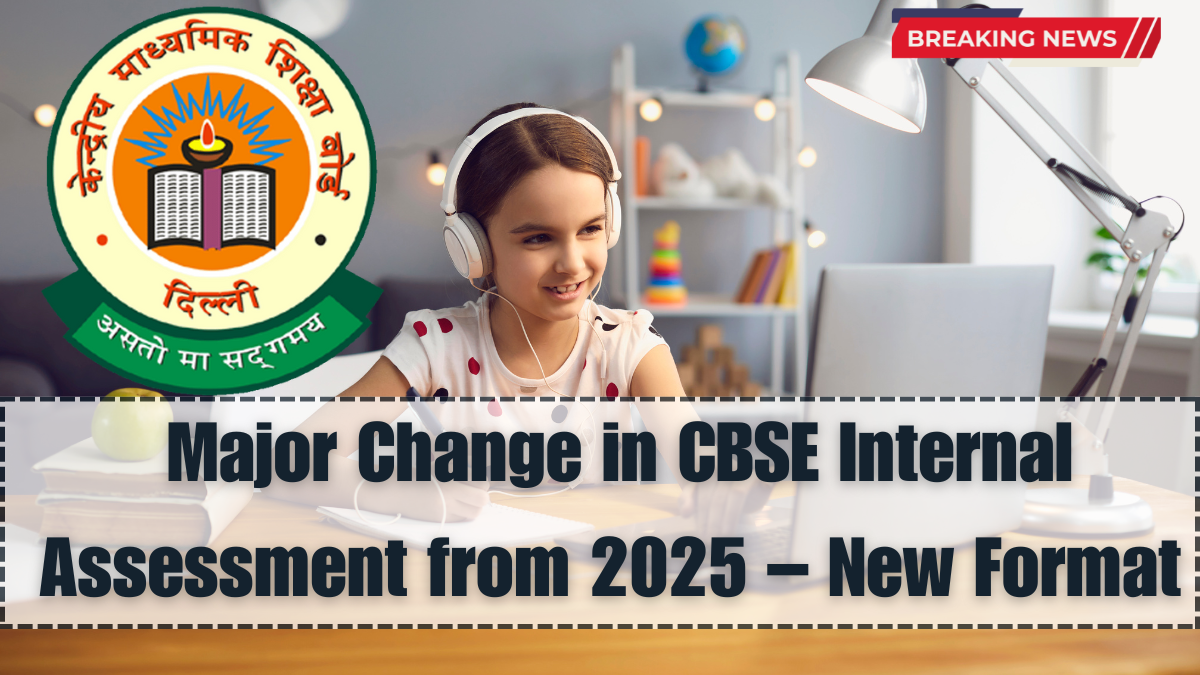The Central Board of Secondary Education has officially implemented the CBSE Assessment Policy 2025, reshaping how students are evaluated across all CBSE-affiliated schools. This updated policy introduces a more balanced system by combining traditional exams with project-based learning and continuous internal assessments.
Designed to encourage conceptual understanding and reduce exam pressure, the CBSE Assessment Policy 2025 now applies to all students from Classes 9 to 12. Schools have started rolling out the new model with updated formats and revised weightages as per CBSE 2025 guidelines.

Key Changes in CBSE Assessment Format 2025
The new CBSE Assessment Policy 2025 gives more importance to real-world application and regular classroom engagement. Major changes include:
-
More weightage to internal assessments and project work
-
MCQ and competency-based questions to replace rote learning
-
Descriptive answers reduced to focus on clarity and accuracy
-
Integration of peer evaluation and self-assessment
-
Continuous assessment model rather than end-term focus
The aim is to make the system more student-friendly, inclusive, and reflective of actual learning outcomes under CBSE 2025 reforms.
Revised Marking Scheme and Subject Evaluation
CBSE has shared a new internal-external evaluation ratio for all subjects under the CBSE Assessment Policy 2025. Here is the updated marking format:
| Subject Type | External Exam (%) | Internal Assessment (%) | Tools Used |
|---|---|---|---|
| Language | 80 | 20 | Projects, Speaking Test |
| Science/Math | 70 | 30 | Lab Work, MCQs |
| Social Science | 70 | 30 | Map Skills, Presentations |
| Skill Subjects | 50 | 50 | Portfolio, Viva, Activity |
This new marking scheme helps in capturing a student’s all-round development instead of relying solely on written tests.
Tools and Methods Used in Internal Assessment
Schools are now using a mix of academic and activity-based tools to assess students under the CBSE Assessment Policy 2025:
-
Oral presentations and debates for language fluency
-
MCQ quizzes and online assessments for conceptual clarity
-
Science experiments and models for STEM subjects
-
Peer evaluation to encourage teamwork and feedback culture
-
Reflective journals and portfolios to document learning progress
Teachers are receiving special training to carry out this internal assessment change effectively and fairly.
Impact on Students and Teachers
The introduction of the CBSE Assessment Policy 2025 is already showing positive results in classroom behavior and learning quality:
-
Reduced exam anxiety and pressure among students
-
Improved classroom participation and focus
-
Better teacher-student engagement during assessments
-
Opportunity to earn marks through creativity and critical thinking
-
Real-time tracking of performance throughout the year
This transformation ensures that the evaluation process is now more supportive and aligned with real-world skills.
FAQs
What is the CBSE Assessment Policy 2025?
CBSE Assessment Policy 2025 is the revised structure for evaluating students through internal and external assessments to promote holistic education.
What is the new weightage system?
Subjects now carry a mix of external exams (70–80%) and internal assessment (20–30%) depending on the subject type.
Are MCQs compulsory in every subject?
Yes, MCQ-based evaluation is now mandatory in several subjects, especially Science, Math, and Social Science under the CBSE 2025 pattern.
How will internal assessments be conducted?
Assessments will include projects, presentations, group work, and activity-based tasks that are graded throughout the year.
Does this policy apply to all CBSE classes?
Yes, the CBSE Assessment Policy 2025 applies to students of Classes 9 to 12 across all CBSE-affiliated schools.
Click here to know more.
